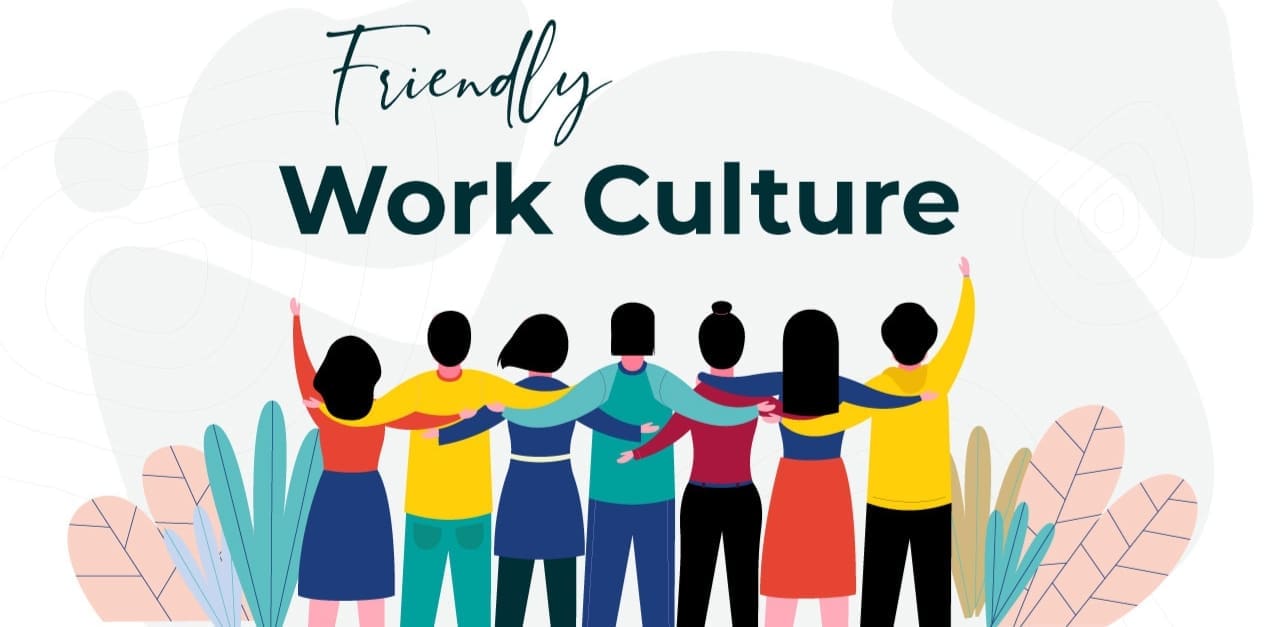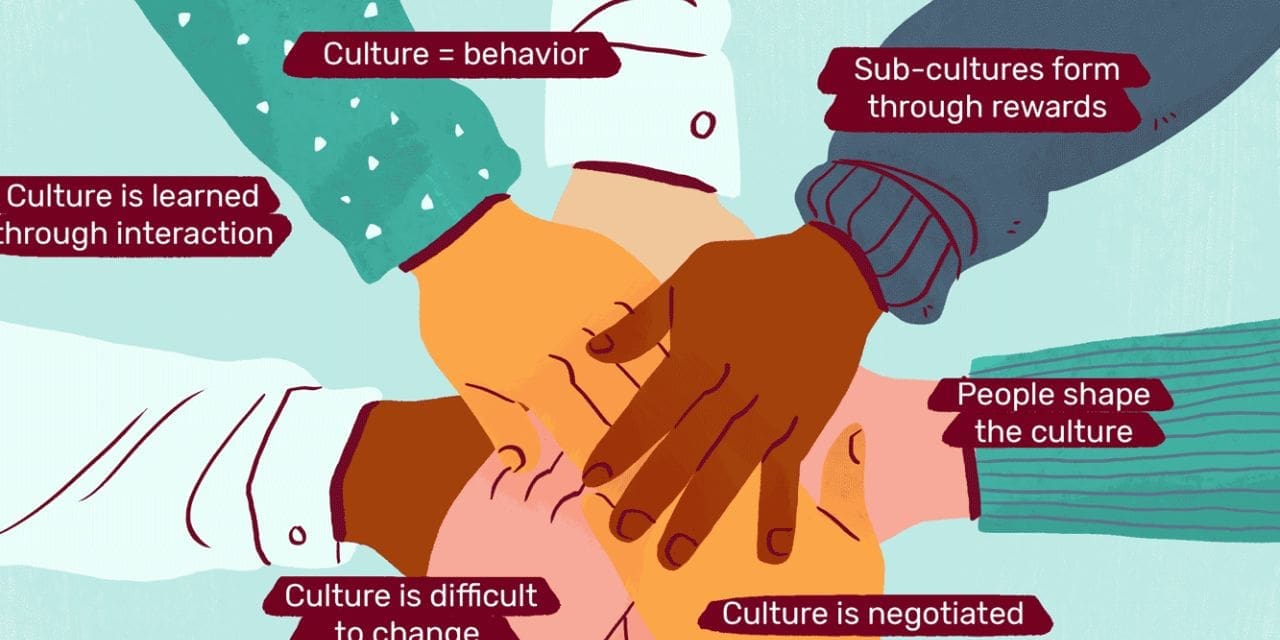
B.Basu Textile Expert
Abstract: A healthy work culture means good attitude, to obey the rules, follow the discipline where all the employees feel comfort and self-satisfaction. It leads the organizations to a profit stage. In the nonproductive departments like Govt. Offices the healthy work culture can be brought by creating discipline and work responsibilities at all stages. The unbiased assessments of individuals for his/her work accomplishments will make everyone happy.
At every Organization, there should be growing focus on everyone to feel whether he/she is valued or not. Before the Covid pandemic, all the white collared people used to attend the offices which were mainly time bound and there were the challenges faced by them to fulfil the Targets. Presently, they are bound to fulfil the target by working from home. It gives them good family life but side by side, they should also interact with their teammates for the better administration and results. They are provided with all tools such as MIS, Data, Information Technology and can monitor from Home by looking through CCTV installed at the work places.
The shop floor people need to come every day in shifts and are supposed to take all target filling works without the presence of their bosses. Hence, they should be dedicated to the authorities under the lance of their boss watching from home.
The future work culture will be freer and less time bound means Sr. Management Babus who are supposed to deliver the results will be allowed to accomplish it by managing his flexible duty hours. He may manage to finish the responsibilities even by working in holidays.
The Shop floor Technicians will be decongested where more sophisticated machineries and Information Technologies are appearing, and they can also be monitored at any distance.
The recruitment policies are going to be more stringent with more skills and experts in the related fields with higher pay packets that leads the organizations in profitable stage.
Key words: Managing work force, Recruitment polices. Shop floor technicians, Work from home, White collared people.
[1] Introduction.
Unlike previous years there are good changes in work culture in all the organizations right from the Top to Bottom. Earlier days the physical presence of everyone including C- Suite executives was must in the working places. Now the white collared Babus and C- Suite Executives are allowed to work from home thus saving huge time and economy. The serving & Marketing personnel may opt for work from home. All will take shape as per the nature of the jobs. There are the higher scopes for the white-Collar job market (see fig 1) TOI, 10.02.22 for the higher turnover.
The blue collared people need to be present at floor level every day monitored by the C- Suite executives.
To meet the demand of Export market and that of global competitions after the pandemic, the organizations need to modernize the machines and work culture. Cost cutting though a subject but may not be a major factor. The employees with passion, knowledge with potentiality is going to get place in the organizations with higher pay packets.
There will be good climate change in the organizations to improve the workings conditions and that of the satisfaction of the workforce. There will be the introduction of more Digital technologies, e – marketing, more scopes of Supply chain, demand for the health workers, IT, and Technology improvements i.e., revolution 4 and 5. The Industries are gradually tying up with the IIT, NIT, NIFT, TRA etc to develop Market, Export promotions, Skill developments. The good financial supports are coming from the Govt. towards various missions.
In true sense, “work is worship” conception is coming. The retention of the work force with proper identifications and assessments with their output is already come in force.
In the unorganized sectors too, the motivation to the employees with proper job allocation, skill improvements are in rise. The future working systems in the Govt sectors where there is the general impression of their laziness and inefficiency are to be turned in more positive directions.

It is in high demand for the Technology Sectors, health care & Pharma, automotive, manufacturing, retail, education Telecom etc.
[2] What is work culture?
Work culture is a collection of attitudes, beliefs, and behaviours, obey the rules and disciplines by all that make up the comfortable atmosphere in a work environment. Healthy workplace cultures make happy to all the employees in reaching to the goals. That leads to the Company profit. It will also consider the well-being of individuals. Work culture determines how well a person fits into their environment at a new job and their ability to build professional relationships with colleagues. The attitude of the individuals, work-life balance, growth opportunities and job satisfaction depend on the culture of the workplace.
In the non-profit and non-productive organisations like Govt offices, the good work culture can be created by making proper SOC & SOP, bringing disciplines at all levels. Proper and unbiased job assessment and performance, judging the quality and skills of the individuals and valuation in accordance with their output will make the employees happy.

It has explained very nicely in Fig. 2 and the Organizations should be able to implement them.
[3] What impacts work culture?
Work culture evolves based on the behaviours of the people within the organization, from management to entry-level employees. Company leadership sets the tone for company culture through their policies, benefits, mission. Managers shape company culture from their expert knowledges, where they can select applicants, whose personal vision aligns with a healthy work culture. The physical environment of a workplace also influences culture, with many offices opting for an open floor plan, natural lighting and the inclusion of perks such as in-office gyms and break room amenities.
Employee engagement and satisfaction are affected by a variety of factors—and a workplace that speaks to one’s culture is essential. Employees view their workspaces as a symbol of whether or not they are valued by their employers.
Growing focus on employee retention necessitates investment in learning and training activities. Organizations still need great leaders, managers, and employees at all levels to get things done in an efficient and effective way. We believe there is tremendous unrealized value from this new era yet to be claimed in how we communicate and collaborate in the future work environment.
At its core, how we work in future will be more networked, more devolved, more mobile, more team- based, more project-based, more collaborative, more real-time, and more fluid. The challenge will to be make sure it is not more complicated, confusing, or overwhelming. This will require better and different ways to communicate, collaborate, and network. Large multimodal fluid networks will rely increasingly on new pathways for information to be exchanged and lessons shared, leaning heavily on new, enabling digital technologies. Equally, if not more importantly, it will require leaders to act increasingly as network architects and role models for the new ways of working. Done well, the future of work offers the opportunity to provide the most engaging and motivating environment we have yet experienced and, after decades of aspiring to the idea, to become truly learning organizations.
[4] Digital Technology
Digital technology is having a profound effect on the 21st century organization. It is fundamentally changing the way we work, the way we manage, where we work, how we organize, the products we use, and how we communicate. People should be considered the most critical asset of most organizations. It should be considered right from the intake procedures.
The digital technology includes access to information, improved communication, data generation which will be helpful for the Education, Industry and Hearth care services. In education sectors, apart from regular class notes the digital Technologies will flow more interesting and latest Information’s.in business Sectors, the digital Technologies will share the experiences of the customers and their satisfaction level to improve the product range and that of qualities.
[5] Accelerating Talent development and Performance Improvements
The style of functioning at the working places are changing at a good speed and there should be more stress on Employee Productivity, passion, and innovations. Cost cutting though not a major solution, the companies are studying on increasing performance pressure, tap to the unlimited potential with talent. On the job learning and talent development provide an effective and sustainable way to accelerate performance improvement at individual, team, organization, and ecosystem level.
The future Talent search will be through Mostly in Skype and multiple cross examinations than that of the traditional face to face interviews. The Artificial Intelligence will play a bigger role in recruitments. Applicant’s tracking systems and that of Keyword scanners will become commonplace.
[6] The Climate change
Want To Keep Your Workers? Change Your Climate Policies
Climate change policies have become front and centre for companies, — not only because of ethics and reputation, but also because their employees demand it. More than three-quarters of global executives said climate change policies affect their ability to attract and retain talent.

According to Deloitte’s 2022 CxO Sustainability Report. That could be a wake-up call for companies facing the pandemic-era labour shortage. The climate events of 2021, including serious floods and wildfires, getting weather change to be hotter and even more. “It’s not just a ‘nice to have,’ but it can affect their ability to retain staff,” Kathy Alsegaf, Deloitte’s global internal sustain-ability leader, said. Workers’ physical and mental health is affected by climate change, more than a third of the respondents.
The report, which is based on a survey of more than 2,000 executives around the world, found that nearly all respondents’ companies had already felt some negative effect from climate change. Almost half of them also reported it has had an impact on their operations.
On the flip side, improved employee morale and well-being is one of the top five benefits executives identified of their current sustainability efforts. Improved brand recognition and reputation, as well as customer satisfaction. (Ref. Textile Excellence 7-13 Feb’22). Comfortable weather will be retaining the workforce within the premises rather than to toil.
[7] Conclusions
The conceptions of the work culture are growing in positive directions than that of the previous days when it used to be the wish of the “Malik” or as per the choice of one poor qualified boss. Now with the advent of the new & newer technologies, the organisations have changed their mind set from recruitment policy, retaining of the employees with climate change, talent acquisition for the greater output. More scopes are coming to the white collared executives. Work from home conception has started after pandemic for the C-Suite and white collared executives giving some advantages for both the executive as well as for the Organisations. More & more data will be stored vis Digital Media in all the industries including education sectors.
The modern work culture will make the employees happier and that will in turn benefit the organisations.

